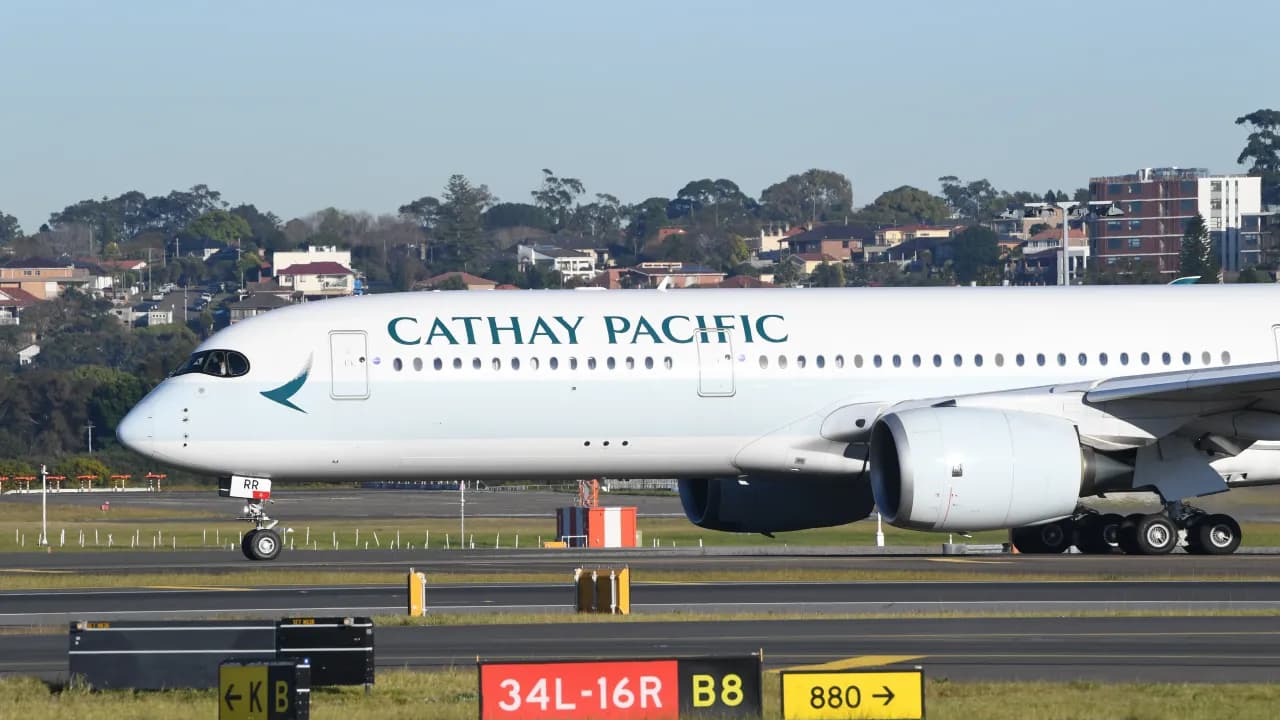The Hong Kong-based airline said it expects to receive the 777-9 airplanes by 2034 and has received significant discounts from the planemaker.
Cathay Pacific said on Wednesday that it would buy 14 Boeing widebody jets for about $8 billion to boost its fleet after posting a rise in profit in the first half of the year.
The Hong Kong-based airline said it expects to receive the 777-9 airplanes by 2034 and has received significant discounts from the planemaker. It will also have the option to purchase seven more Boeing wide-body jets.
Cathay said that the order came as the company exercised its option to purchase the aircraft under a 2013 agreement. The airline now has 35 777X orders on its books, making it one of the largest operators of the wide-body aircraft in the world.
“Designed to reduce fuel use and emissions on average by 20% and noise by 40% compared to the airplanes it replaces, the 777-9 will enable Cathay Pacific to efficiently meet growing air travel demand across key global markets,” Boeing said in a statement.
Retail sentiment on Stocktwits about Boeing was in the ‘bearish’ territory at the time of writing.
The 777-9 is the latest version in the 777 series and is yet to be certified by the U.S. Federal Aviation Administration. Boeing CEO Kelly Ortberg had said last month that the company is doing flight tests and expects to begin deliveries next year.
The Cathay deal is another major win for Boeing this year, as this was the first 777x order placed by the airline in over a decade. Boeing’s backlog has surged past $500 billion as airlines scramble to bolster their fleet amid an expected surge in passenger traffic.
Boeing stock has gained 26% this year.
Separately, Cathay reported a 1.1% rise in net profit to 3.65 billion Hong Kong dollars ($465 million) for the first six months of 2025, compared to the same period a year earlier. The company attributed the uptick to higher passenger volume and lower fuel prices, which offset lower yields resulting from expanded capacity.
“Despite the uncertainties caused by tariffs and changes to the de minimis exemption, our cargo business demonstrated resilience,” CEO Patrick Healy noted about cargo traffic.
For updates and corrections, email newsroom[at]stocktwits[dot]com.<
